Dental Implants Winthrop
Replacing Your Missing Teeth for Life
When you lose permanent teeth due to accident, injury, disease, or extraction, dental implants can be a secure, functional, and esthetic tooth replacement option. Dental implants offer many benefits. They can help maintain proper alignment of the surrounding teeth, preventing shifting and tipping of neighboring teeth. They can be used to help retain dentures and other full-mouth prosthetics, enhancing the ability to chew and digest. They are also very strong when properly cared for. Dental implants in Winthrop restore function and comfort without involving other healthy teeth, helping maintain the integrity of your overall oral health.
Here at Brooks Dental, Dr. Stephanie Brooks performs oral surgical procedures including dental implant placement, tooth extraction and socket preservation bone grafting, sinus lift surgery, and the use of Platelet-Rich Plasma (PRP) to improve healing and surgical outcomes. Dr. Stephanie received her implant surgical training from Dr. Arun Garg’s Implant Seminars Continuing Education program, and she is a member of the International Dental Implant Association. She completed the Implant Continuum in 2020 where she became trained in placing dental implants. She then went on to complete the Masters’ Series in 2025, where she completed training for sinus lifts and bone regeneration surgeries. If you’re interested in learning more about dental implants and how they can restore your smile, contact Brooks Dental to schedule an appointment!
Why Choose Brooks Dental for Dental Implants?
- Surgical Dental Implant Placement & Restoration in One Convenient Location
- All-Digital Technology Used for Treatment Planning & Restoration Accuracy
- Dr. Stephanie Brooks Possesses Advanced Training in Dental Implants Placement
What Are Dental Implants?
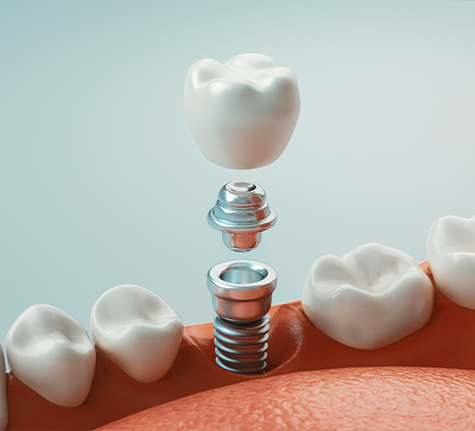
A dental implant is simply a small post, made of surgical-grade titanium, that’s inserted surgically into the jawbone below the gum surface at the location of a missing tooth. As titanium is biocompatible, the body naturally accepts it as a tooth root, fusing to it to create a secure bond. An abutment is connected to the implant post above the gum to allow a custom-made dental crown to sit on top and fill the space. If you are missing one or all your teeth, you can use dental implants to hold a crown, bridge, partial, or full denture in place.
The 4-Step Dental Implant Process
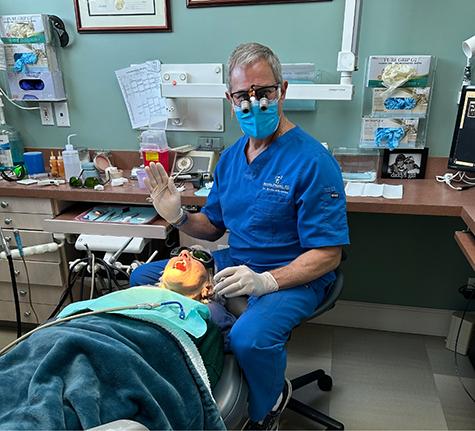
The dental implant procedure consists of several different components and steps. Dr. Stephanie Brooks will walk you through the entire process and let you know what to expect. This means that every stage of your smile transformation – from the initial consultation to the placement of finished, high-quality restorations – will be carried out by the same trusted professional you already know and trust. The four main stages of dental implant treatment are consultation, implant surgery, uncovering (for some cases, not all), and finally, restoration.
Initial Dental Implant Consultation
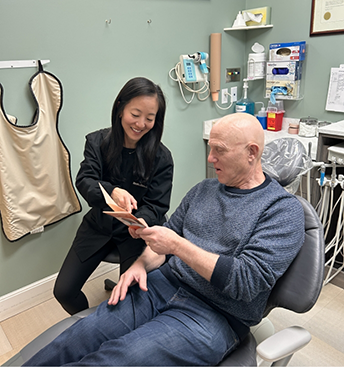
When preparing for dental implants, we start the process with a scheduled consultation. Dr. Stephanie will complete a thorough exam and review your full medical history. She will take a CBCT scan of the missing tooth area and determine whether you are a candidate for dental implant placement. The treatment will be discussed with you that day and all questions answered. Financial arrangements will also be discussed at this time. With all this information, Dr. Stephanie can determine the next steps and schedule you for treatment.
Dental Implant Surgery

While many general dental practices in the greater Winthrop community have to refer their patients to outside specialists for this portion of care, Brooks Dental is happy to offer this service right here in-office. Dr. Stephanie will place the implant(s) using local anesthesia, and you will leave with either a cover screw underneath the gum or a healing cap, which pokes out slightly above the gum tissue.
Uncovering

After implant placement, your jawbone will need time to grow and attach to the dental implant. This portion of healing is called osseointegration, and it is critical not to rush this process. Osseointegration can take 3 to 6 months depending on the area of the mouth and the patient’s healing capacity. After this period of healing, Dr. Stephanie will “uncover” the top of the implant fixture, which involves reopening the gum tissue. It is considered a minor procedure. She will remove the cover screw and place a healing abutment, which pokes out of the gum tissue. You will then wait 3-4 weeks for the gum tissue to heal around the abutment prior to the next step. Not all cases require an uncovering; some patients will get to skip this step
Final Impression and Delivery of Implant Abutment and Crown

It is finally time to create your permanent restoration! We will have you in to take a final impression in the form of a digital scan. The digital scan is sent to the laboratory who will fabricate both a custom titanium abutment and ceramic crown. The custom abutment will be screwed right into the implant fixture, and the crown cemented on top of the abutment will mimic your natural tooth. About 3 weeks later, your prosthetic is ready, and you’ll come back to our office to enjoy your permanent smile!
Benefits of Dental Implants

More than 500,000 dental implants are placed every year due to the various benefits they offer, including their 5-year 95 percent success rate. Read on to learn the many benefits of dental implant treatment.
Day-to-Day Benefits

Every day, you need to have prosthetic teeth that look and feel realistic. Fortunately, dental implants are the closest thing to natural dentition. In fact, because they replace the entire tooth structure, including the root, implants offer stability and security that traditional prosthetics can’t. As a result, you don’t have to be concerned about slippage at any time, giving you confidence in many situations.
In addition to looking just like real teeth, dental implants need the same maintenance that natural teeth require. Daily brushing and flossing—along with regular checkups—are easy to integrate into your schedule and lifestyle, especially when you compare this care routine with the high maintenance of dentures!
Health Benefits

Although having traditional dentures is often better than having no replacement teeth at all in terms of your eating ability, these prosthetics give you only about 25 percent of your biting strength. Consequently, you may turn to more processed foods, which tend to be unhealthier and can affect your overall health negatively. In contrast, with dental implants, you can regain about 80 percent of your biting force. With this ability, you can enjoy a more varied, nutritious diet, helping you maintain a higher quality of life.
Did you know that once your tooth roots are gone your jawbone slowly deteriorates from the lack of stimulation? Dentures and bridges do nothing to stop this process on their own, but when they are attached to dental implants, the jawbone remains stimulated and properly dense.
Long-Term Benefits

As the jawbone shrinks over time with normal dentures or bridges, facial features can change, looking more sunken and collapsed. However, dental implants protect your facial structure for the long term. In fact, these replacements have the potential to last for a lifetime. This longevity, along with many other priceless benefits, can make them a smart investment. Paying to replace dentures and bridges every few years adds up and can surpass the initial cost of dental implants, making this treatment often a more cost-effective and long-lasting alternative.
Who Dental Implants Can Help

Patients with a wide spectrum of tooth loss, from a single gap to an entire arch, can often benefit from the transformative power of dental implants. Generally, if you have missing teeth and good oral and general health, you are a candidate for the treatment. Your medical history and lifestyle habits will be discussed to ensure that your risk factors for implant failure are minimal. In some cases, you may need additional procedures before being a candidate for implant placement, such as bone grafting or tooth extractions. Read on as we cover who dental implants can help, how many teeth they can replace, and what it takes to be a good candidate for this potentially life-changing treatment.
Who Is a Good Candidate for Dental Implants?

With innovations in the placement process and materials, more patients than ever before are good candidates for dental implants. Some limiting factors may include:
- Poor general health
- Inadequate bone structure
- Diseased gums
- Chronic oral health problems such as teeth clenching and grinding (bruxism)
- Systemic diseases
- Unhealthy habits such as smoking and excessive alcohol consumption
However, if you’re not initially a good candidate for dental implants, we can often help you become one with preliminary treatments like bone grafting or gum disease therapy. Once you qualify for dental implants, we can design your treatment plan around how many teeth you’re missing:
Missing One Tooth
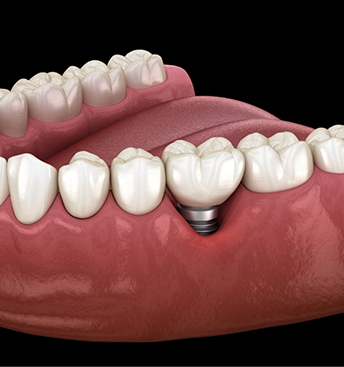
When replacing a single tooth, an all-porcelain dental crown can be paired with an individual dental implant for an outstanding result. This modern procedure is superior to anchoring a traditional dental bridge in place because it doesn’t require the surrounding natural teeth to be negatively altered in any way.
Missing Multiple Teeth
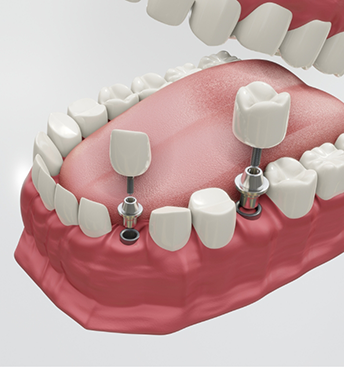
All-porcelain dental crowns can be fitted over multiple dental implants throughout the mouth. However, if we need to replace several missing teeth that used to appear in a row, an implant bridge is another viable option. We will place two dental implants on either side of the gap and fit the prosthetic teeth into place over them, replenishing the space with a sturdy, lifelike replacement.
Missing All Teeth
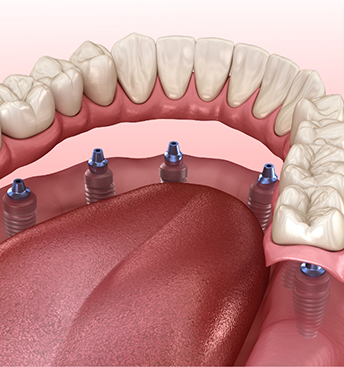
If you have more advanced tooth loss, an implant denture may be recommended. Partials fill gaps in the smile, replacing numerous consecutive and nonconsecutive teeth, and can usually be supported by three to four implant posts. Full dentures replace an entire row of missing teeth, and they are usually anchored using four to six implant posts.
Advanced Dental Implant Procedures
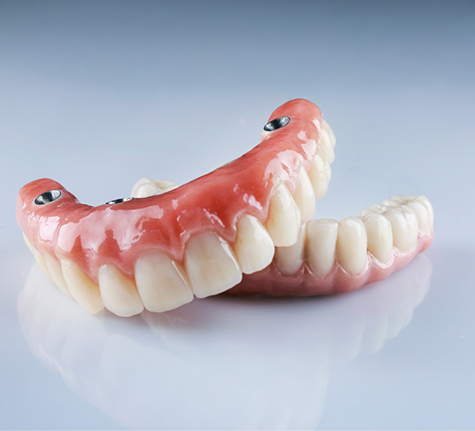
Dr. Stephanie has undergone extensive training enabling her to provide a variety of procedures to ensure the success and comfort of our dental implant patients.
Bone Grafting
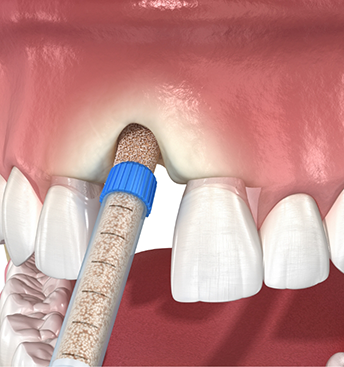
Bone grafting is a crucial preparatory procedure for patients seeking dental implants but lacking sufficient jawbone density. This advanced technique involves transplanting bone material to the implant site, stimulating natural bone regeneration and providing a stable foundation for the implant. Grafting enhances long-term implant success and overall oral health. Whether using autogenous, allogenic, or synthetic materials, bone grafting is a safe and effective way to ensure optimal structural support for dental implant placement.
Sinus Augmentation
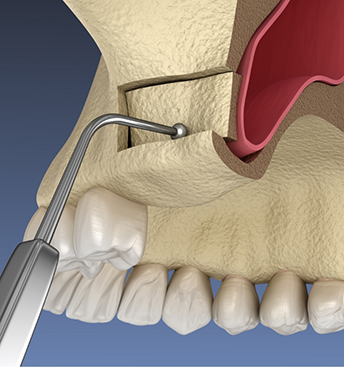
Sinus augmentation, also known as a sinus lift, is a specialized procedure performed to increase bone volume in the upper jaw, particularly in the posterior maxilla where natural bone height may be insufficient for dental implant placement. By gently lifting the sinus membrane and placing bone graft material beneath it, this procedure creates a stable, supportive foundation for implants. Sinus augmentation significantly enhances implant success rates and is a vital step in restoring function and aesthetics.
Platelet-Rich Plasma (PRP)
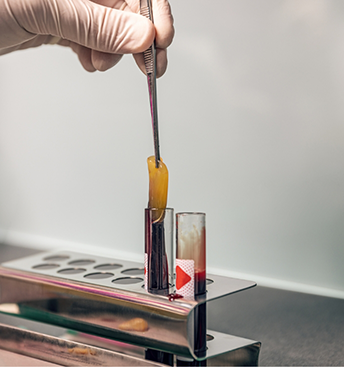
Platelet-rich plasma (PRP) is an advanced regenerative technique used to enhance healing and tissue regeneration in dental implant procedures. Derived from the patient’s own blood, PRP is rich in growth factors that accelerate bone and soft tissue healing, reduce inflammation, and minimize post-operative discomfort. When used in conjunction with bone grafts or implant placement, PRP supports improved integration and recovery outcomes.
Dental Implant Technology

When placing dental implants, to ensure a successful procedure and a comfortable experience, we put together a detailed treatment plan beforehand. To do so, we utilize our 3D cone beam scanner, which enables us to create three-dimensional X-ray images of the teeth, jaw, and surrounding oral structures, including the nerves and soft tissues. This allows us to personalize your procedure based on your dental anatomy as well as find the perfect locations for your new teeth.
Learn More About 3D Cone-Beam Imaging
Understanding the Cost of Dental Implants

If you’re shopping for the best dental implant price, there are some things you need to understand. The first is that all dentists want their patients to receive the highest-quality treatments that will last and most closely mimic the natural function of their healthy teeth, but we don’t want you to receive treatments you don’t feel comfortable financing. At Brooks Dental in Winthrop, we work hard to keep our treatment costs reasonable, and that includes providing dental implants at an affordable price.
Before we begin your dental implant tooth replacement plan, we will carefully explain the pricing and out-of-pocket costs associated with it. Our team is happy to offer several payment and financing options to fit these expenses into your budget. If you have questions about dental implant costs or any aspects of this treatment process, call to schedule a dental implant consultation with us today.
How Much Do Dental Implants Cost?
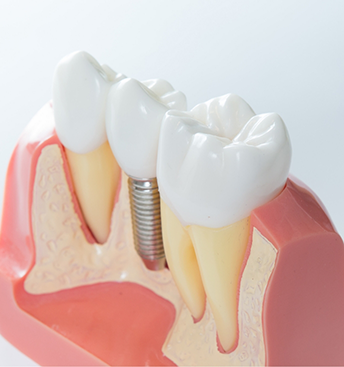
The cost of a single dental implant post can run between $500 and $3,000 depending on the material used, the size of the implant, and the type of implant post. Luckily, many manufacturers offer discounted pricing if you need more than one implant post.
What Influences the Cost of Implant Tooth Replacement?

In addition to the price of the implant posts and their surgical placement, there are several other treatments you may need that will affect the cost, including:
- The need for preparatory treatment like tooth extraction and bone or soft tissue grafts
- Sedation dentistry services that help you maintain comfort and relaxation throughout treatment
- The tooth replacement prosthetic, including dental crowns, bridges, and dentures
Does My Dental Insurance Cover Dental Implants?

In most cases, dental insurance does not cover the cost of dental implant posts or their surgical placement, but you will likely receive coverage for some other aspects of your treatment plan. Many policies provide coverage for preparatory tooth extractions and grafting, sedation dentistry, and your replacement tooth or teeth. We will help maximize this coverage to ensure you have the lowest possible out-of-pocket costs for your treatment plan.
How Does the Dental Fee Plan Work?
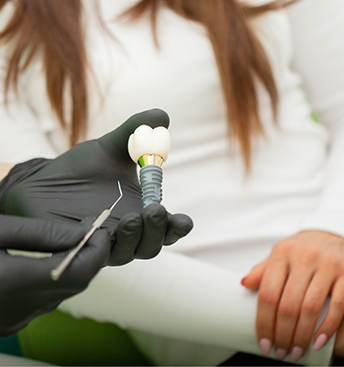
We are happy to offer financing through our Dental Fee Plan. With pre-approval, this plan can be a great option to help you spread out the cost of implant placement over several months. Additionally, we are happy to work with third-party financiers that specialize in providing low- and no-interest payment plans. Please don’t hesitate to ask about the Dental Fee Plan or third-party financing during your consultation.
Can I Use My FSA or HSA Funds for Dental Implants?

We are happy to accept payments from flexible spending accounts (FSA) and health savings accounts (HSA). If you have one of these accounts through your benefits provider, let us know when we are planning out your payments, and we will be happy to help you put these monies to their best use to offset treatment costs.
Dental Implants Post-Op Instructions

In the aftermath of dental implant placement, things can go right, resulting in a perfectly restored, natural-looking smile, or they can get off track, particularly if the protective blood clot that forms over the site comes off too early, leading to complication or even failure. In the short period after the surgery and until you receive your new restorations, the care you give can determine what outcome you experience. Fortunately, our team will guide you through what you need to do to ensure smooth healing and implant success.
What to Do Directly After Dental Implant Surgery

Although minor, this surgery still takes a toll on your body. As a result, you should go directly home to rest for a couple of days. Lie down with your head at least slightly elevated above your heart, especially when you sleep. This position will prevent excessive blood pooling in the area and reduce your chances of headaches, pain, and swelling. Put a cold compress on your face, and be sure to take pain reliever according to the instructions to stay comfortable.
Common Side Effects When Recovering from Dental Implant Placement

While the blood clot can properly shields the vulnerable site from bacteria, many patients still experience the following after implant placement:
- Minor discomfort or soreness in your jaw and at the surgical site, but this should only last a couple of days at most and can be managed through over-the-counter reliever and cold compresses.
- Fatigue immediately after the placement procedure.
- Sensitivity in your teeth and gums, which is why you shouldn’t have hard, crunchy foods for about a week afterward.
If you happen to notice the pain getting worse (not better), have a fever, or experience other potentially worrisome symptoms, call us right away.
Your Diet After Dental Implant Surgery

Your intake can help fuel your body and point it in the right direction for healing. Hydration is undoubtedly important, but you must not use a straw for at least 48 hours following the procedure. The sucking motion can dislodge the clot. Little sips of water can keep you hydrated without risking complications or tooth decay.
As far as food goes, you should wait until the anesthesia wears off before you consider eating anything. When you have feeling in your mouth again, you can have a soft food diet, which consists of options like the following:
- Mashed potatoes.
- Eggs.
- Yogurt.
- Applesauce.
- Oatmeal.
After a few days, you may start to reintroduce certain foods back into your diet, but avoid crunchy or hard foods for up to a week. At that point, you should be able to get back to a normal eating plan without seriously harming your progress.
Post-Op Health & Oral Hygiene
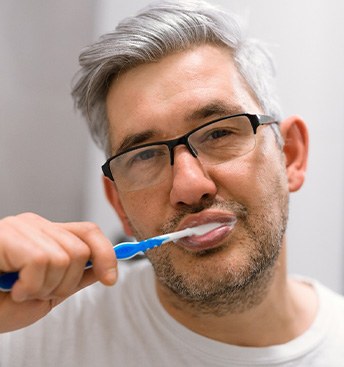
Even though you may be resting, bacteria won’t take a break. As a result, you need to continue taking excellent care of your oral health through daily hygiene. For the first 24 hours, you can brush and floss other areas of your mouth but avoid the surgical site. You can also rinse with warm saltwater to clean the area, but spit gently to avoid disturbing the clot.
While you recover, you may want to treat yourself with ice cream, gelatin, and other sugary treats, but these can increase the chances of infection and complications that could interfere with your implants’ success.
What to Do After Your New Teeth Are Attached

As soon as you receive your new teeth, you’re free to use them just as you would real dentition. However, to adjust to your new smile, you may want to take biting and chewing slowly for the first few meals. You don’t want to bite your tongue or cheek accidentally because you’ve gotten used to missing teeth. Also, when your restorations are bonded into place, you are responsible for keeping them clean and plaque free.
Maintaining & Caring for Your Dental Implants

Just like most other things in life, dental implants in Winthrop have the ability to last an incredibly long time—only if you keep them in good condition! At first, the thought of maintaining your prosthetics may feel tedious, but it is all well worthwhile to hold onto your confident, functional smile for the long term and avoid missing teeth again. Fortunately, it doesn’t take anything extra to preserve them: you basically treat them as you would real teeth!
Make Oral Hygiene a Priority

Even though your dental implant post(s) or restoration will not ever contract a cavity, your mouth still needs to be cleaned on a daily basis. In fact, brushing twice per day for 2 minutes each time and flossing at least once per day are still just as important as they are with natural teeth. Plaque contains bacteria that can cause bacteria that cause peri-implantitis, an infection that leads to implant failure. Without ridding your teeth and gums of plaque every day, your replacement teeth may not last as long as you wish they would.
Eat a Healthy Diet

Part of keeping your mouth clean and implant friendly is making the right food choices. Too much sugar, starch, and carbohydrates encourage bacterial growth. On the other hand, nutritious foods like vegetables, fruit, lean meats, and more can strengthen your body’s ability to fight infection and keep your smile strong. We’re not saying you can’t have any sugar—just limit your consumption to preserve your dental implants and keep using them every day.
Break Bad Habits

Just as good habits can benefit your smile, bad ones can threaten it. After all, your implants are not indestructible. Tendencies like biting your nails or opening packages with your teeth can put excessive pressure on your implants and increase the chances of failure. Do your best to end these things.
Although some serious habits can pose a huge challenge to stop, such as smoking, vaping, or using tobacco, these can put your implants at risk of failure. If you need help, seek assistance from your loved ones, friends, and even mental health professionals or addiction specialists.
Protect Your Dental Implants

A blow to the mouth can knock out a dental implant, which means that wearing a mouthguard is a great idea, particularly when you plan to play or participate in a contact sport or other activity like skateboarding. A custom mouthguard especially absorbs the hit, helping to lower the impact to your dental implants as well as your brain.
Schedule Regular Dental Checkups

Again, although your prosthetic teeth will never develop cavities, your gum health is essential for the longevity of your implants. As a result, you need to continue coming in for regular checkups with us. We can identify early signs of infection and take care of the issue before it endangers your full smile.
Dental Implant FAQs
Can I Smoke with Dental Implants?
Smoking and tobacco use of any kind lowers your body’s ability to heal and fight infections, which can lead to dental implant failure. As a result, it is best to avoid tobacco in any form to decrease your risk of implant failure.
How Successful Are Dental Implants?
Dental implants offer over a 95% 10-year success rate. With the right aftercare, like maintaining your oral hygiene and regular dental appointments, an implant can be maintained for many years.
What Are Dental Implants Made Of?
Dental implants in Revere are most commonly made from surgical-grade titanium, an incredibly strong metal. Titanium is biocompatible, enabling it to fuse with the jawbone while also providing a strong foundation for a new replacement tooth. A crown, bridge, or denture is placed on top of the implant and securely fastened by a small piece called an abutment. These dental prosthetics are often made from porcelain or similar ceramic material, which are both strong enough to stand up to natural chewing forces and can be color-matched to blend in perfectly with your smile.
How Long Do Dental Implants Need to Heal?
Most dental implants fully heal and integrate with the surrounding jawbone in approximately 3 to 6 months. It is important to note that the length of recovery can vary depending on a variety of factors, such as the density of your jawbone and the number of implants placed.
There is no one-size-fits-all dental implant treatment because every smile is unique! If you want more detailed information about your implant treatment plans, do not hesitate to schedule an initial consultation with Dr. Stephanie Brooks.
What Happens If I Don’t Replace a Missing Tooth?
Replacing a missing tooth is about more than just cosmetics. Missing teeth can lead to serious negative health problems over time, such as:
- Shifting Teeth – Although teeth seem to be fixed in place, they can slowly drift out of position and into the open space left by a missing tooth. Dental drift can make it more difficult to properly clean teeth and even lead to bite problems.
- Sunken Face – Chewing stimulates blood flow in the jawbone. When a tooth goes missing, the jawbone lacks this stimulus and as a result, slowly begins to deteriorate. Jawbone deterioration can lead to a person’s face appearing sunken and aged.
- Poor Nutrition – Missing front teeth make it harder to bite into fruits like apples or tear off bites of vegetables like celery. Missing molars, meanwhile, can make it more difficult to grind up tough foods like meat.
How Long Have Dental Implants Been Available?
Archeologists have uncovered evidence that early versions of dental implants were used as far back as 2000 BC in ancient China, where carved bamboo pegs sometimes replaced missing teeth. Sounds painful! Fortunately, modern dentistry has advanced quite a lot since that era.
In 1952, an orthopedic surgeon discovered the biocompatible properties of titanium, and soon thereafter dentists began successfully experimenting with titanium dental implants.
Modern dental implants have been in use since the 1970s and are today considered the most effective and reliable tooth replacement solution available.

